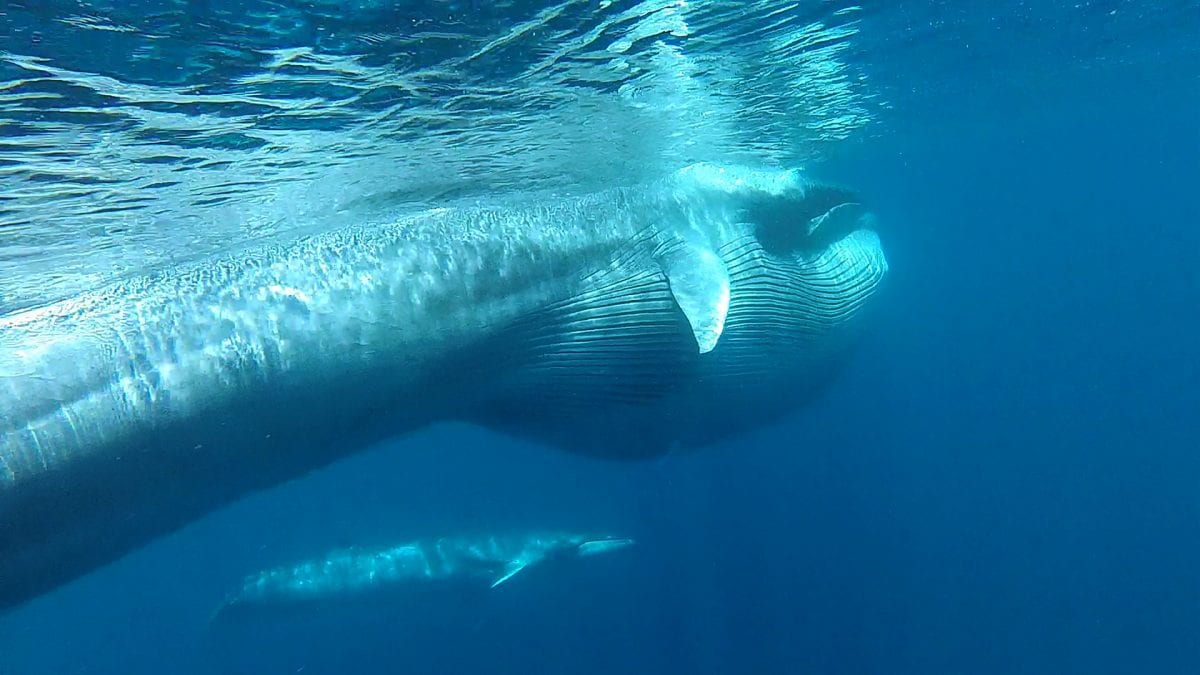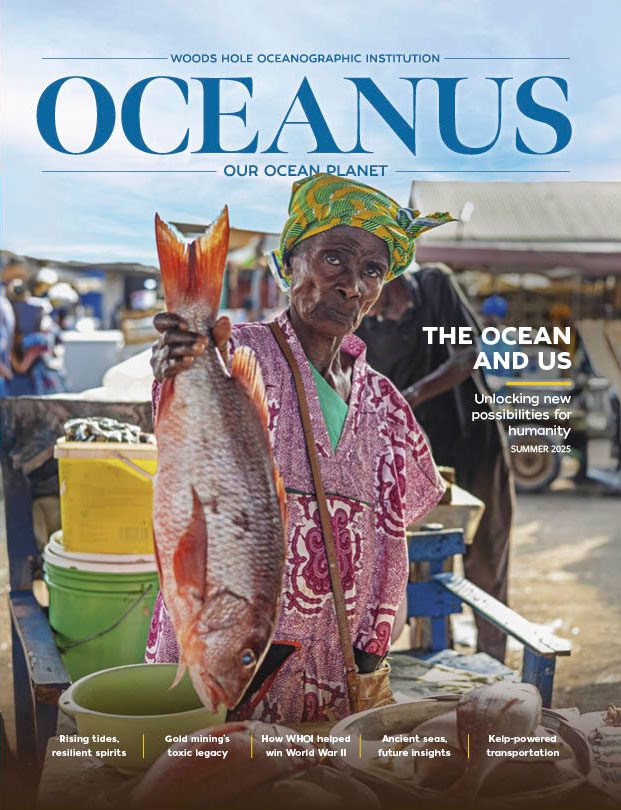
A New Whale Species Is Discovered in the Wild
A surprising population dwells off Madagascar
Scientists have discovered a thriving population of Omura’s whales—a species that hadn’t even been identified until 2003 and had never before been documented in the wild.
Omura’s whales were misidentified as similar-looking Bryde’s whales until thirteen years ago, when Japanese researchers identified them as a distinct and ancient species, using genetic data from samples from old whaling expeditions and a few strandings. The whales are named after a famous Japanese cetologist, Hideo Omura.
Omura’s and Bryde’s are both baleen whales. Omura’s are about 33 to 38 feet long, slightly smaller than Bryde’s, and they have distinct markings with a lower jaw that is white on the right side and dark on the left, similar to the better known fin whale.
In 2015, an international research team led by Salvatore Cerchio, a guest investigator at Woods Hole Oceanographic Institution (WHOI) and at the New England Aquarium, published findings of 44 Omura’s whale sightings off the northwest coast of Madagascar. DNA analyses of skin biopsies from eighteen individuals confirmed that the whales were Omura’s. The team also observed mothers with young calves and recorded adults’ songlike vocalizations that may indicate reproductive behavior. The research team returned to Madagascar in November 2015 and sighted more than 80 Omura’s whales and documented what they feed on: swarms of krill.
Cerchio is working with colleagues at WHOI to deploy Digital Acoustic Recording Tags (DTAGS) that can reveal more about the swimming, feeding, vocalizations, and behaviors of this newly discovered whale population.
This research was supported by the International Whaling Commission Small Cetacean Conservation Fund, the U.S. Marine Mammal Commission, and the Prince Albert II Conservation Fund. Findings were published October 2015 in the Royal Society Open Science journal by Salvatore Cerchio, Alec Lindsay (Northern Michigan University), Melinda Rekdahl (Wildlife Conservation Society), and Boris Andrianantenaina, Norbert Andrianarivelo, and Tahina Rasoloarijao (Université de Toliara, Madagascar).
